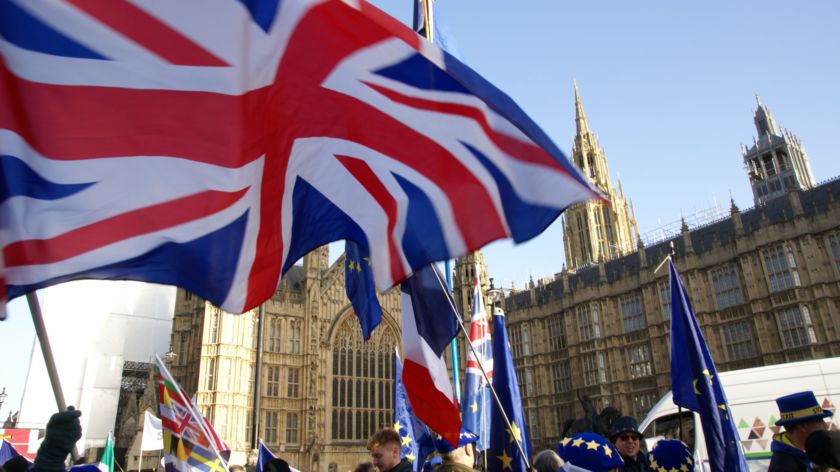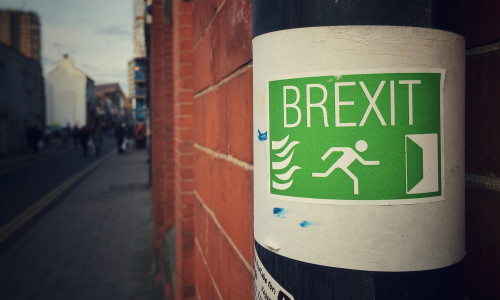British scientists: ‘I’m ashamed of my own country’
-
 Foto: Wikimedia Commons
Foto: Wikimedia Commons
Around one million people demonstrated in London at the weekend against Brexit. And Prime Minister May’s position is weakening. In Nijmegen, British scientists view their homeland with increasing astonishment. 'I immediately applied for a Dutch passport.'
‘Am I allowed to swear?’ Linguist Sharon Unsworth, originally from the UK, has lived in the Netherlands for eighteen years now. She is cycling when we phone her. The persistent uncertainty about Brexit makes her sad and angry, she says. ‘It’s turning into a farce.’
Unsworth has had both a British and a Dutch passport for years. Brexit, in whatever form it takes place, has few consequences for her. And yet the situation in her homeland is making her feel less British. ‘I’m just ashamed of it all. It’s strange enough that people would vote for something for which there was no plan. But there is still no solution two years later… that’s a real failure.’
‘It’s turning into a farce’
Unsworth knows that the students are affected by it too. ‘I’m not lecturing at present, but I have colleagues who have had lots of questions from their students. Particularly in English Language and Culture, of course.’ But it’s mainly a question of wait and see. ‘My friends and family who still live in the UK don’t know what they should do either.’
Dutch passport
Professor David Norris is another person viewing his homeland with mixed feelings. He’s been working for the Donders Institute since 2001 and has a family in the Netherlands. Until the Brexit referendum, a Dutch passport seemed unnecessary. ‘But as soon as the referendum result was known, I applied for one’, he says. ‘I was lucky. I had been living here precisely long enough to be able to obtain nationality without having to take the civic integration exam.’
In the personal sphere, the consequences are not that serious, but as Norris emphasises, they may be more so in the scientific field. ‘There is much neuroscience research being done in the UK. And a great deal of uncertainty about how those collaborations will proceed later. In addition, a large number of researchers at British universities come from other European countries. Some already want to come back.’
Exchanges
That creates opportunities too. Norris thinks that Radboud University will be able to attract many good researchers in the coming period. ‘However, in the long term, such barriers are actually bad for the academic world. In the end, in fact, the best exchange of knowledge happens when you bring scientists together. I’m already seeing that my postdocs would rather not go to the UK any more, even if it would be good for their research.’
In the meantime, the uncertainty about Brexit persists. Norris is already making preparations for the event of a no-deal separation. Last month, he took an advance supply of medicines to his mother, who still lives in the UK. ‘It hasn’t been necessary up till now, but you never know. I don’t want my mother having to do without her medicines because of delays in border checks.’


Bram schreef op 28 maart 2019 om 16:52
since 20001?
Stan van Pelt schreef op 28 maart 2019 om 22:26
Thanks. Adjusted!